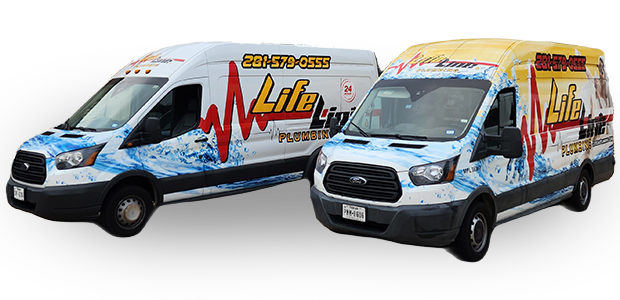This past February, Texas endured what many are calling the “storm of the century.” A polar vortex phenomenon sent frigid, arctic air spilling down from its normal place over the north pole as low as south Texas, prompting below-freezing and even sub-zero temperatures in many parts of the state. This freeze brought power plants offline, froze over pipes in homes and businesses everywhere, and showed a glaring weakness we have to long-term spells of freezing weather. In total, extended power outages and lack of heat caused more than 40 deaths and left us with a lot of questions as to why we were so unprepared and what to do about it in the future.
Life Line Plumbing was left to answer a lot of these questions ourselves. In the aftermath of the storm, we saw many people with burst pipes, major leaks, and other serious problems that meant potentially catastrophic consequences. Here are three things we learned and that we feel many of our customers and others around the state learned from this catastrophic freeze event.
Lesson 1: Emphasize the Importance of Plumbing Insulation
Plumbing insulation became a hot-button topic over the days of the freeze and for weeks after. Improper insulation combined with temperatures that sat below freezing for nearly an entire week meant many people throughout Texas saw their pipes burst. That meant many people were forced into the heavy expense of major plumbing repairs as well as long waits for plumbers due to an immense spike in demand.
Plumbing insulation can generally be purchased at any home improvement warehouse for a few dollars per segment, and installation is incredibly simple. However, it will eventually wear out and need to be replaced. Worn-out insulation is prone to leaks, and that means it can’t do its job of preventing your pipes from freezing over. Check your insulation every fall, replace any damaged or decayed segments, and always make sure to drip your faucets during freezing weather to prevent any potentially catastrophic damage.
Lesson 2: Have a Backup Source of Power
This past freeze meant customers throughout the state faced extensive power outages, during which period they would have no access to cooking equipment or heating. Likewise, limited gas supplies meant there was not a lot of energy to go around for gas fireplaces or ranges. This emphasizes the importance of having alternative sources of power for cooking and heating. A portable generator can provide enough power to run a small heater or a few small cooking devices. A propane stove can provide you with a burner or two for heating up canned food that can hold up under harsh conditions.
Before the winter storms set in, it’s a good idea to purchase some of these emergency supplies to make sure you have the ability to cook or heat a small area. Even just keeping them in your attic or garage for the event of an emergency could be a brilliant decision in the event of a long-term outage.
Lesson 3: Winterize Your Home Every Fall, No Matter What
Many weather “experts” predicted a fairly mild winter with temperatures that would be slightly above-average. However, none of these experts could have possibly predicted the catastrophe that was the freeze of 2021. For many people, the milder temperatures meant foregoing annual maintenance that was meant to help homes avoid the potential pitfalls of winter conditions. Things like covering outdoor spigots, insulating pipes, checking attic insulation, and checking and maintaining emergency supplies like batteries, water supplies, food supplies, and more.
This just goes to show how critically important it is to winterize your home every year. During the fall season, take the time to do a few important tasks that will help your home better survive a long stretch of frosty weather. This includes all of the following:
- Check insulation around your home, including around windows, doors, and other potential areas where cold air from the outdoors could seep in. This cold air will make your home uncomfortable and could damage critical fixtures like faucets and pipelines.
- Clean your roof gutters. This gives melting snow and ice a smooth and easy way of clearing out into storm drains, where it can be safely dealt with.
- Maintain your heating equipment. When temperatures plummet, an efficient heater is critical to saving you money and avoiding a damaged furnace. Having your heater professionally maintained is a valuable investment. Likewise, take the time to change your air filter for better air quality too.
Need help winterizing your plumbing to prepare for winter? Have your pipes frozen over? Whatever you need help with, the team at Life Line Plumbing is here to help customers in Katy and the surrounding areas. Give us a call at 281-809-0049 today to schedule an appointment.





